Table of Contents
Is Public Finance a Positive Science or a Normative Science:
Public Finance is a Positive Science:
The Classical economists with their faith in laissez-faire and market mechanism advocated minimum functions of the Government. Accordingly, they believed that the private sector was more efficient than the public sector. Therefore, the activities of the State were considered a necessary evil and were to be kept to the minimum possible scale. Hence, a small budget was considered the best budget. Obviously, the scope of public finance was limited and consequently, the scope of the public sector was also limited.
Public Finance was mainly considered a description of the way in which the operations of the treasury would interfere with the working of the private sector of the economy and the way in which it could keep such interference at the minimum. Under such circumstances, public finance was defined as the revenue-expenditure process of the Government. However, Prof. Prest observed that the Classical economists divided the subject matter of Public Finance into its (Government) revenue, expenditure, and debt aspects. Whereas Adam Smith in his Wealth of Nations, Book V, gives precedence to expenditure, Ricardo and J.S. Mill concentrated much more on revenue. However, it was argued that “the fiscal problem pure and simple” should not be confused with “alien consideration of social and economic policy.”
As far as the neo-classical are concerned, they gave very little significance to the discussion of public finance. Actually, a systematic exposition of the subject of public finance disappeared from the major works of Marshall and Edgeworth, the two great economists at the end of the nineteenth century. However, a systematic study of public finance was first made by Bastable which was exclusively devoted to public finance and was published in England in 1892. But, he also defined public finance in the traditional way. Thus, according to Bastable, “Public Finance deals with expenditure and income of public authorities of the State and their mutual relation as also with the financial administration. Similarly, Dalton in 1992 defined public finance as “It is concerned with income and expenditure of public authorities, and with the adjustment of one to the other.”
Besides, some other modern economists also defined public finance in the traditional fashion. For instance, according to Lutz, “Public Finance deals with the provision, custody, and disbursement of resources needed for the conduct of public or Government functions.” Carl C. Plehm says that “the public finance has, by usage accepted, to be confined to a study of funds raised by governments to meet the cost of government.”
Not only this, but even some more recent economists have also defined public finance more or less in the traditional manner. For instance, Prof. Harold Groves defines public finance as “A field of enquiry that treats of income and outgo of governments (federal, State and local). In modern times, this includes four major divisions: public revenue, public expenditure, public debt, and certain problems of fiscal system as a whole, such fiscal administration, and fiscal policy.” Similarly, Taylor defined it as, “Public Finance deals with the finances of the public as an organized group under the institution of government. It, thus, deals only with the finances of the government. The finances of the government include the raising and disbursement of government funds, public finance is concerned with the operation of the fisc, or public treasury. Hence, to the degree that it is a science, it is a fiscal science; its policies are fiscal policies, its problems are fiscal problems.”
An analysis of the above definitions reveals that public finance is a positive science. As positive science, it is concerned with, to explain that how public authorities have collected revenue; how they make public expenditures; and how the revenue-expenditure processes are administered. It is concerned with, what it is. It is not concerned with, what ought to be. Thus, public finance is not concerned that how the revenue and expenditure process (i.e., fiscal operations) of the government is affecting or will affect the economic and social aspects of life. To put it differently, public finance is concerned with tax and expenditure policies and it is not with, how the tax and expenditure policies affect the social and economic aspects of life, and consequently, it is not concerned with choosing that policy which gives optimal results.
It means that the study of the effects of fiscal operations was outside the scope of public finance. Therefore, as, a positive science, public finance was not concerned with the problems such as:
- What criteria should be applied when one is judging the merit of various budget policies?
- What are the responses of the private sector to various fiscal measures such as tax and expenditure changes?
- What are the social, political, and historical forces which have formed the shape of present fiscal institutions and which determine the formulation of compensatory fiscal policy? It means the public fiance is not concerned with how interested groups try, affect the fiscal process and how do legislators respond to such pressures.
It should be clearly stated here that it were the Classical economists who believed that public finance was not supposed do answer such questions, i.e., the above-mentioned questions. It means Classical economists regarded public finance as a positive science and it has not to deal with the normative aspects of fiscal operations. However, the new classical gave little significance to the study of public finance. Though Bastable, Dalton, Pigou, Carl C. Plehm, Harold Groves, and P.E. Taylor, all defined public finance in the traditional manner, yet they did not outrightly rejected the normative aspects of fiscal operations, i.e., they did not say that the effects of fiscal operations lie outside the scope of public finance. Moreover, with the appearance of the Great Depression in 1930 and the publication of J.M. Keynes “General Theory of Employment, Interest, and money” in 1936, the influence of government fiscal operations on the overall level of economic activity and the level of employment has become an integral part of the subject-matter of public finance. This is reflected in the later editions of Prof. Pigou’s and Dalton’s books on public finance. Thus, it can be said that these economists also accepted public finance as a normative science. But it is also obvious that they emphasized more on positive aspects of the fiscal operations rather than normative aspects.
Public Finance is a Normative Science:
In the context of the definition and scope of public finance, Prof. Musgrave said that “while operations of the public household involve money flows of receipts and expenditure, the basic problems are not issues of finance. They are not concerned with money, liquidity, or capital markets, rather, they are problems of resource allocation, the distribution of income, full employment, and price-level stability and growth. Therefore, we must think of our task as an investigation into the principles of the public economy: more precisely, into those aspects of economic policy that are used in the operation of the public budget. Thus, according to Prof. Musgrave, the objective of fiscal operation is to make proper allocation of resources, the distribution of income, full employment, and price-level stability and growth. It means the effects of fiscal operations on the allocation of resources, distribution of income and full employment and price-level stability and growth studied in the scope of public finance.
The study of the effects of fiscal operations is included in the scope of public finance is also obvious from the definition given by Brownlee and Allen which says that “It is with the public economy, with the effects of governmental money-spending and money raising activities upon the allocation of resources, the distribution of income and the general level of economic activity within the economy…….that the bulk of our analysis is concerned.” Similarly, Prof. Herber says that “The government means of allocation is accomplished through the budgetary practices of taxing and spending……..In addition to the allocation function, public finance is also concerned with the three other major areas of economic activity i.e. distribution, stabilization, and economic growth……..Thus, public sector decision-making just as private sector decision-making necessarily influences allocation, distribution, stabilization, and economic growth where budgetary action takes place. It is thus, obvious that the science of public finance studies and analyses the effects of government budgetary practice of taxing and spending on four major spheres of-
- Allocation of productive resources among competing multiple uses.
- Distribution of income and wealth among the people.
- Economic stability.
- Economic growth.
Above definition of public finance point out that the scope of public finance has been broadened by modern economists. It now includes not only the revenue expenditure process of the government but also the effects of fiscal operations on the economic ad social aspects of the economy. In this context, Prof. Musgrave rightly observed that “Indeed there was a time when the provision of public services was considered its only legitimate function, and it was argued that “the fiscal problem pure and simple” should not be confused with “alien considerations of social and economic policy.” Subsequently, however, most people came to recognize that the revenue and expenditure process of government is bound to have social and economic effects and that these may be aimed usefully at purposes not directly connected with the immediate objective of satisfying public wants.”
Besides, both in the field of taxation as well as public expenditure, the government cannot do without exercising some value judgment while fixing the rate of progressive taxation and deciding how much more be spent for the poor than for the rich. Similarly, value judgment may be involved in the field of borrowing and deficit financing as well as in the satisfaction of public wants and maintaining economic stability, and achieving the proper state of distribution. Thus, a value judgment is involved in the field of taxation, borrowing, deficit financing, and public expenditure. It means that the effects of fiscal operations are not only explained but it is seen as whether they are good or bad. Therefore, it can be said that public finance is also a normative science.
Again, public finance lies very closely near the borderline of economics and political science. It has also been realized by Dalton, “Public finance lies very close to the practical politics. It is in this sense the most live branch of economics……Studies in public finance have, for this reason, a special fascination………Therefore, certain welfare considerations creep into the scope of public finance. Hence, public finance cannot stick to the avowed objective pronounced by Robbins of not looking at “what ought to be” analysis at all. It means it cannot follow Robbins who has treated economics as a positive science and said that economics has no concern to give value judgment and point out, “what ought to be”. Contrary to this public fiance has now been regarded as a normative science. Hence it can give value judgment and point out, “what ought to be”.
Since public finance has now been regarded as a normative science, therefore, fiscal measures are now used to check trade cycles, reduce unemployment, and bring about a proper state of distribution of income and wealth among the members of the community, to promote capital accumulation and economic growth and remove regional disparities. Therefore, rules and principles which are considered necessary for the efficient conduct of public policy are sorted out. It is, thus, obvious that public finance has now been recognized as a normative science also.
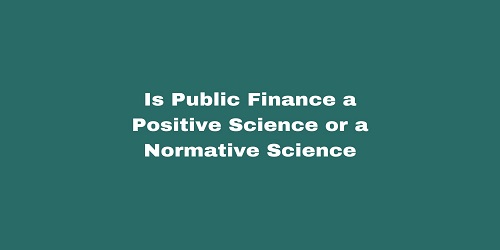

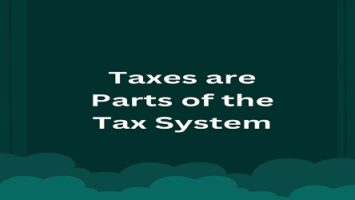
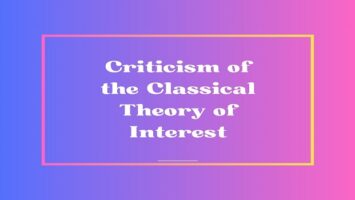
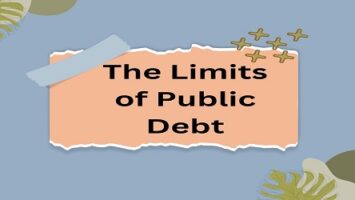
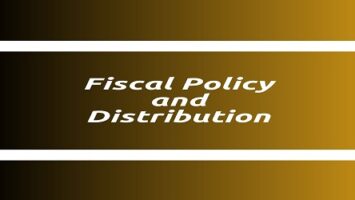
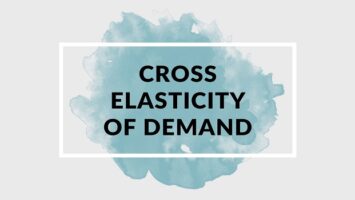

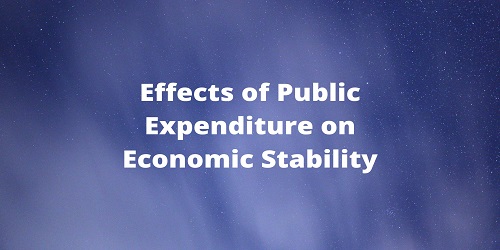
Comments (No)